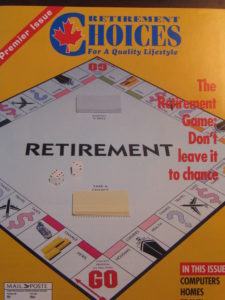
Starting is hard. Doing is easy. Even when it comes to the hardest things, starting is harder than actually doing the hard thing.
For the most important things, or the things where we have the most to gain, starting is the hardest thing.
If things are really easy to do, if they’re important, starting is hard.
Why is that? Maybe we’re afraid of the consequences if we fail. Maybe we’re afraid of the consequences if we succeed. After all, what would we fret about all day if all our “to do’s” were done? Who knows where or why but as the proverb goes, “there is an enemy within.”
And if this enemy shows itself in areas which are important or where we have the most to gain or lose – it probably manifests itself as often as ever when it comes to the following:
- relationships
- personal fulfillment
- exercise
- diet
- finances
These are all big areas where we could stand to gain a lot if we get things right! And the longer we delay starting, the more it stresses us out – we sit in a paralytic trance, waiting for inspiration to hit us and it just never happens.
Perhaps breaking larger goals into smaller, more tangible steps might help, or at least it might trick you into doing something that sends you in the direction of progress. While we don’t proffer advice in many of the above areas and in fact struggle as much as anyone, we think the following smaller steps might help get you on the road to sorting out your financial house. We’re sure there are more but here’s 9 to start:
9 smaller ideas to move you towards getting your finances in order
1.) Make sure you have an up-to-date Will, Power of Attorney designation and Health Directive.
2.) If you have people that depend on you, get insurance to make sure they’re taken care of if something happens to you – term life insurance is relatively cheap and pricing is fairly standardized.
3.) Pledge allegiance to the following mantra: “By far the most important thing I can do to ensure long term financial success is to live within my means.”
4.) If you have children, be sure to open a Registered Education Savings Plan (RESP) and invest enough to get the maximum Canadian Education Savings Grant (CESG)….free money from the government (need we say more?).
5.) If your company has a retirement savings program with matching contributions, it’s usually a good idea to contribute enough to get the maximum match.
6. ) Open a Tax Free Savings Account (TFSA).
7.) If you have investments, grab a pen and piece of paper and write down what you’re invested in, why and how much you pay annually in fees.
8.) If you can’t do number 7 without turning on your computer, educate yourself – we recommend the following Sensible & Concise Investment Books
9.) If these steps still seem overwhelming, find someone qualified and independent to help you.
Postscript – if you’re interested in digging a little further into the enemy within, please read Steven Pressfield’s The War of Art. He calls the enemy Resistance and it’s very real and very, very scary…..
 Graham Bodel is the founder and director of a new fee-only financial planning and portfolio management firm based in Vancouver, BC., Chalten Fee-Only Advisors Ltd. This blog is republished with permission: the original ran late September here.
Graham Bodel is the founder and director of a new fee-only financial planning and portfolio management firm based in Vancouver, BC., Chalten Fee-Only Advisors Ltd. This blog is republished with permission: the original ran late September here.








